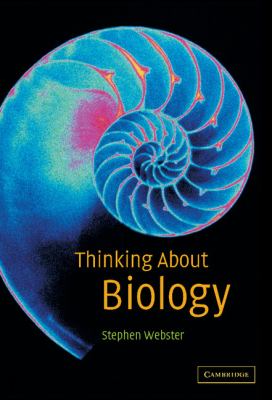 |
Thinking about Biology
Stephen Webster
Cambridge University Press, 2003
ISBN: 0-521-59954-7 |
The author explains that this book was written for biology students who might wonder about the broader implications their field of study has on the world. Indeed the book is divided into chapters that discuss central topics in biology, like evolution and genetics, but it is far from comprehensive. Rather, the author chose a few interesting topics to elaborate on and make his point; namely that biology, like any science, produces truths in a slow and gradual process rather than a series of “eureka” moments. It is here that the book shines. Most students I come across are convinced that science happens in short bursts of brilliance and that the facts they read in their textbooks were determined quickly and unequivocally. Little do they know that science is a continuously evolving and contentious process that requires a lot of careful analysis; and this book makes it clear. In particular I would like to single out the first chapter that very concisely and effectively recounts the true process of scientific discovery using several concrete examples. The rest of the book goes on to extend this thesis, but feels a bit disjointed. To be fair, the author does acknowledge that he considers this a textbook and therefore the chapters are somewhat independent of each other. Given the relevance of the subject matter, maybe it would have been better to have a tighter narrative that would allow a student to independently read through the book from cover to cover, and get a great introduction to the world of biological discovery and its many inevitable controversies.
